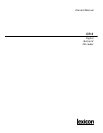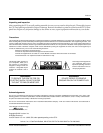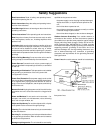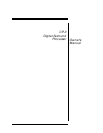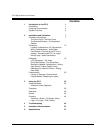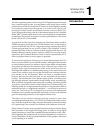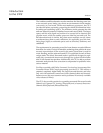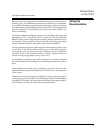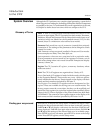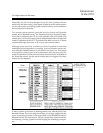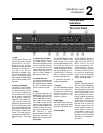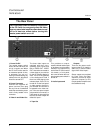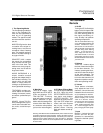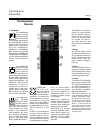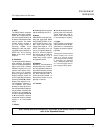
Safety Suggestions
Read Instructions Read all safety and operating instruc-
tions before operating the unit.
Retain Instructions Keep the safety and operating instruc-
tions for future reference.
Heed Warnings Adhere to all warnings on the unit and in the
operating instructions.
Follow Instructions Follow operating and use instructions.
Heat Keep the unit away from heat sources such as radia-
tors, heat registers, stoves, etc., including amplifiers which
produce heat.
Ventilation Make sure that the location or position of the unit
does not interfere with its proper ventilation. For example, the
unit should not be situated on a bed, sofa, rug, or similar
surface that may block the ventilation openings; or, placed in
a cabinet which impedes the flow of air through the ventilation
openings.
Wall or Ceiling Mounting Do not mount the unit to a wall or
ceiling except as recommended by the manufacturer.
Power Sources Connect the unit only to a power supply of
the type described in the operating instructions, or as marked
on the unit.
Grounding or Polarization* Take precautions not to defeat
the grounding or polarization of the unit’s power cord.
*Not applicable in Canada.
Power Cord Protection Route power supply cords so that
they are not likely to be walked on or pinched by items placed
on or against them, paying particular attention to cords at
plugs, convenience receptacles, and the point at which they
exit from the unit.
Nonuse Periods Unplug the power cord of the unit from the
outlet when the unit is to be left unused for a long period of
time.
Water and Moisture Do not use the unit near water — for
example, near a sink, in a wet basement, near a swimming
pool, near an open window, etc.
Object and liquid entry Do not allow objects to fall or liquids
to be spilled into the enclosure through openings.
Cleaning The unit should be cleaned only as recommended
by the manufacturer.
Servicing Do not attempt any service beyond that described
in the operating instructions. Refer all other service needs to
qualified service personnel.
Damage requiring service The unit should be serviced by
qualified service personnel when:
the power supply cord or the plug has been damaged,
objects have fallen, or liquid has been spilled into the
unit,
the unit has been exposed to rain,
the unit does not appear to operate normally or exhibits
a marked change in performance,
the unit has been dropped, or the enclosure damaged.
Outdoor Antenna Grounding If an outside antenna is
connected to the receiver, be sure the antenna system is
grounded so as to provide some protection against voltage
surges and built-up static charges. Section 810 of the Na-
tional Electrical Code, ANSI/NFPA No. 70-1984, provides
information with respect to proper grounding of the mast and
supporting structure, grounding of the lead-in wire to an
antenna-discharge unit, size of grounding conductors, loca-
tion of antenna-discharge unit, connection to grounding
electrodes, and requirements for the grounding electrode.
See figure below.
Power Lines An outside antenna should be located away
from power lines.



